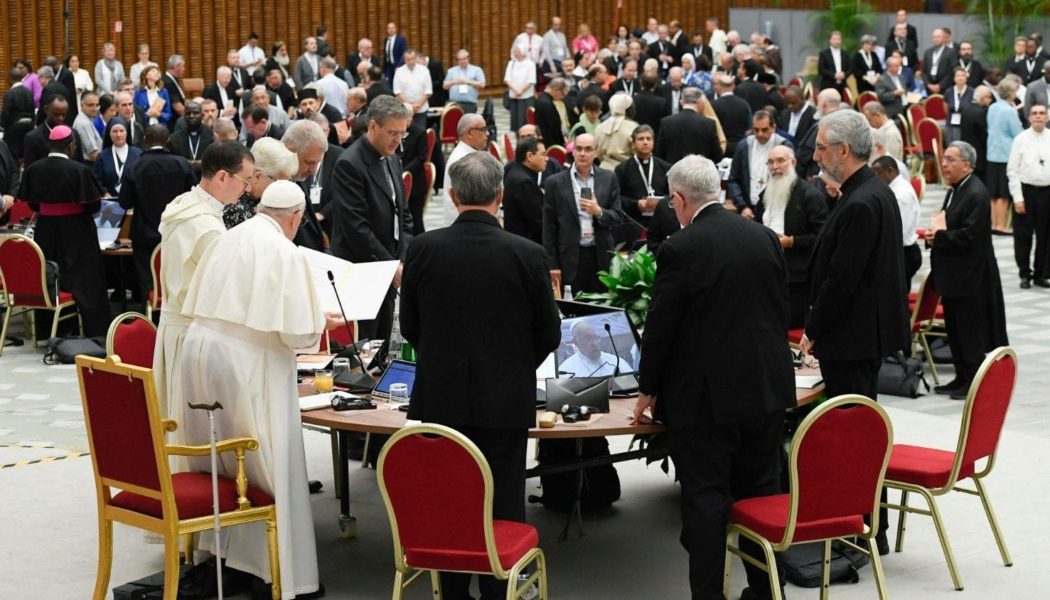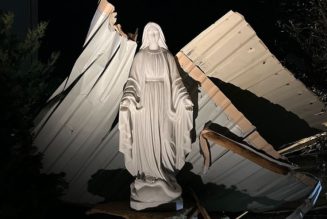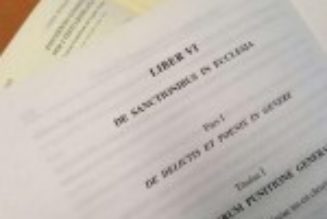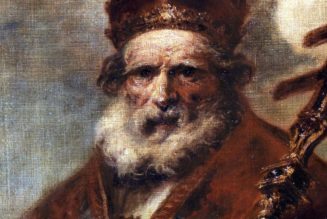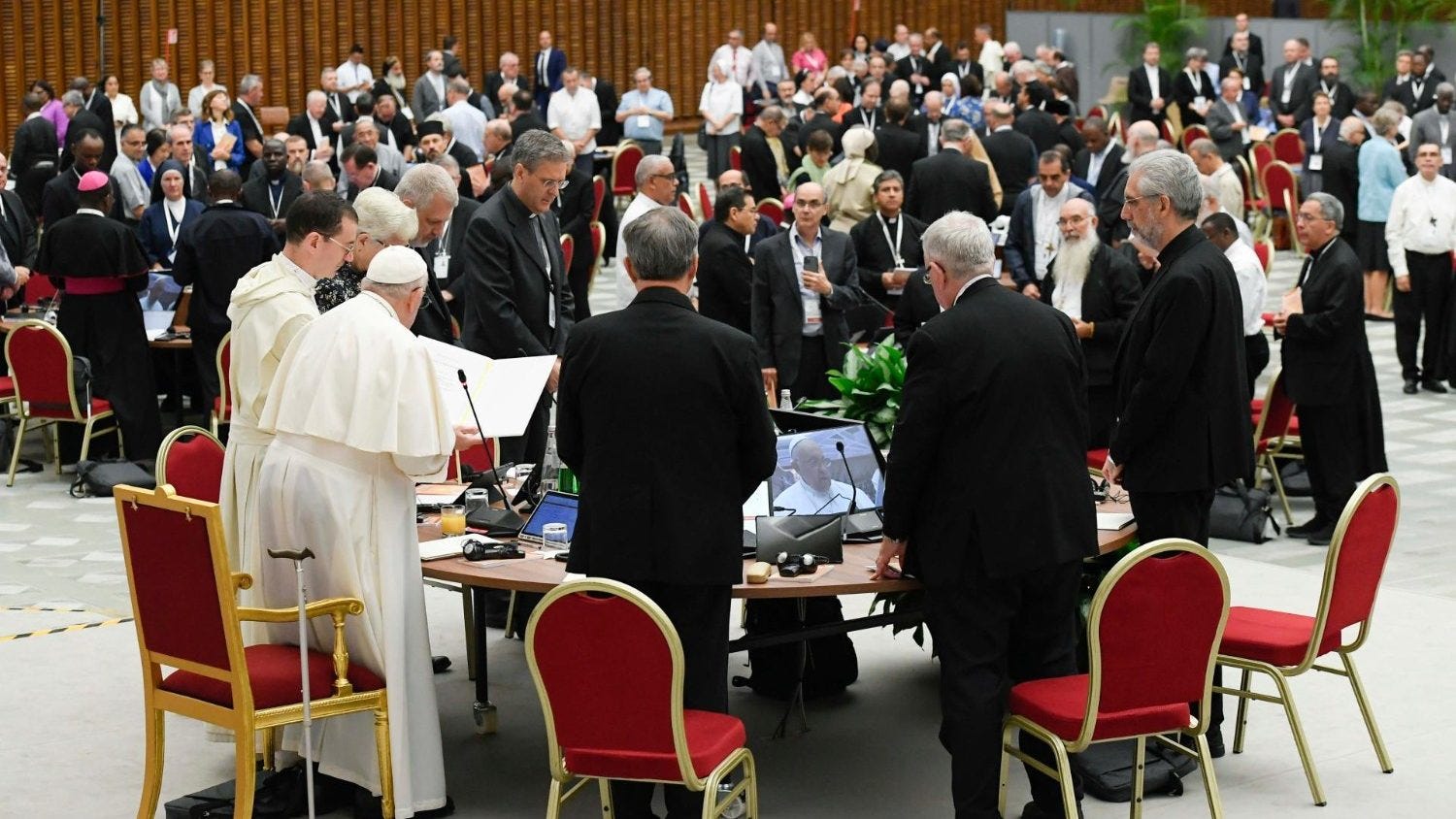
Two Chinese bishops attending the ongoing synod on synodality in Rome left the assembly early this week, returning to China because of “pastoral needs” in their home dioceses.
Bishop Anthony Yao Shun and Bishop Joseph Yang Yongqiang attended the synod after being included in an updated list of papal nominees published last month, with the Holy See confirming Pope Francis had chosen them from a slate of invitees pre-approved by Beijing.
Their early departure mirrors the last time bishops from the mainland participated in a Roman synod in 2018, shortly after the announcement of the Vatican-China agreement, when the two delegates made a similarly premature exit.
The early exit by the Chinese bishops under what appears to most synod-watchers as an obvious pretext, has been noted. And given the attention paid to their invitation and arrival, and the apparently choreographed timing of their leaving, it seems intended to send a message — but what is the message and to whom?
—
The fact that Bishop Yang and Bishop Yao were attending the synod at all attracted criticism on social media when their participation was first announced.
In the years since the 2018 Vatican-China deal, Beijing has steadily exerted formal and unilateral control over the episcopal appointment process for mainland dioceses, first by appearing to preempt Vatican approval of candidates to fill diocesan sees and then by seeming happy to dispense with Holy See involvement at all.
More recently, the Chinese government has gone much further, erecting its own dioceses, and prevailing upon bishops to abandon their legitimate assignments to take up posts recognized by the Communist Party but not the Church.
Bishop Yang himself has a senior role in Church-state affairs in China, too, serving as the deputy head of the Bishops’ Conference of the Catholic Church in China — a state-sponsored group not recognized as a canonical bishops’ conference — which is responsible via the Chinese Patriotic Catholic Association for enforcing Communist Party-approved measures to “sinicize” the Church and faith.
Given all this, many, including some prominent Church commentators, questioned the legitimacy of including mainland bishops in the synodal meeting — especially given that mainland Chinese bishops sat out the diocesan and continental phases of the global synodal process.
But the idea that the two bishops are mere Communist place-men is complicated by the fact that both were nominated by the Vatican to serve as bishops years before the Vatican-China deal and at a time when such a nomination carried at least the real risk of being labeled an agitator and targeted for harassment, if not arrest.
That both have been able to work with the state and within the increasingly strangled confines of Communist Party oversight says something about how the bishops have adapted themselves to the post-2018 Chinese ecclesiastical landscape. But it doesn’t mean ipso facto that either is a cypher for Beijing.
In fact, their premature departure from the synod would seem to argue against concluding either or both of the bishops is a mere conduit for the Chinese state. Were that the case, it would make at least as much sense to leave them in place to the end of the process, so they could gather the most information and vote on the synodal assembly’s conclusions.
A more likely explanation is that China has been and remains nervous about mainland bishops becoming too well integrated with their confreres, especially those who are also near neighbors.
Beijing has an unstated but observable policy about limiting contact of mainland bishops with those from other countries, so much so that a visit to Beijing by the Bishop of Hong Kong, and vice versa, are considered major events.
No mainland bishops (or clergy, or ordinary Catholics for that matter) were allowed to travel to attend the pope’s recent visit to neighboring Mongolia. And none took part in the Asian continental assembly of the synodal process, either.
That gathering, like the current sessions in Rome, included delegates from the Church in Taiwan, a country with whom the Vatican still maintains formal diplomatic ties despite pressure from Beijing. It’s hard to overstate how absolute a line the Chinese government draws with regard to Taiwan, against whom it has been making increasingly bellicose gestures.
Ending relations with Taiwan has been, for decades, a sine qua non for any nation or international body — to the point that Beijing coordinated the exclusion of the island democracy from working with the World Health Organization during the pandemic.
Seen within that context, and given the strict eye the Communist government keeps on the Church coming anywhere near its geopolitical priorities, Yang and Yao’s presence in Rome at all, let alone alongside a bishop from Taiwan, begins to read more like the rare sign of genuine communion the Vatican has billed it to be.
Yang and Yao would seem to have arrived at the synod as sincere episcopal participants, with Beijing letting them go, either as a gesture of good will, or perhaps a face-saving concession to the pope, after five years of public insults to Vatican authority and departures from the terms of the Vatican-China deal.
The Chinese government isn’t known to worry too much about how their actions within the Church in China are received by the Vatican, but there is still an explicit desire on Beijing’s part to see the current deal extended — even and perhaps especially if they see no real need to abide by its terms.
Offering to allow two bishops to attend Francis’ legacy event, then, might be calculated to offer just enough cooperation to see the deal renewed next October, when the final synodal session is set to take place.
–
But if that is so, what, then, should be made of the Chinese bishops’ early synodal departure — now becoming an emerging pattern?
It seems difficult to accept the officially given reason, that some urgent “pastoral needs” required both bishops to return to their dioceses immediately, if for no other reason that it would be a remarkable coincidence for both bishops’ dioceses to have similar pastoral emergencies at exactly the same time.
It’s unlikely to the point of impossibility that the Vatican played a role in forcing them home early, given the pope’s personal investment in inviting them in the first place, and the lengths the Vatican went to to publicize and celebrate their arrival.
Another possibility is that Yang and Yao were only ever only ever meant to come for part of the synodal sessions, and always expected to leave early, and that this was all pre-arranged and understood between the Vatican and Beijing as a kind of mutually accepted compromise gesture.
But it seems unlikely that the Vatican always understood the bishops would be going home early, even if they knew it was a possibility after 2018.
Had Rome known for sure, they would probably have soft-pedaled the bishops’ status as full voting members of the assembly ahead of having to explain their early departure and instead billed them as especially honored observers.
And synodal organizers at least appear to have been in the dark about the bishops’ travel plans — ahead of their departure, both Yang and Yao were assigned to working groups for the second round of table discussions this week.
The most likely explanation for the two bishops’ early departure is probably also the most simple: they were called home by Beijing halfway through the synod just to make clear at whose ultimate sufferance they were attending in the first place.
While the Vatican might have suspected, even expected this might happen after the events of 2018, they had no real way of knowing for sure, and so had to assume they would be participating in the synod as full members and staying for the whole duration.
If Beijing did order Yang and Yao home just to show it could, it would be an unsubtle move, as power plays go. But the message may be all the clearer for it — Chinese bishops have exactly as much communion with Rome, and with the rest of the Catholic Church, as the government allows.
Comments 9
Services Marketplace – Listings, Bookings & Reviews
